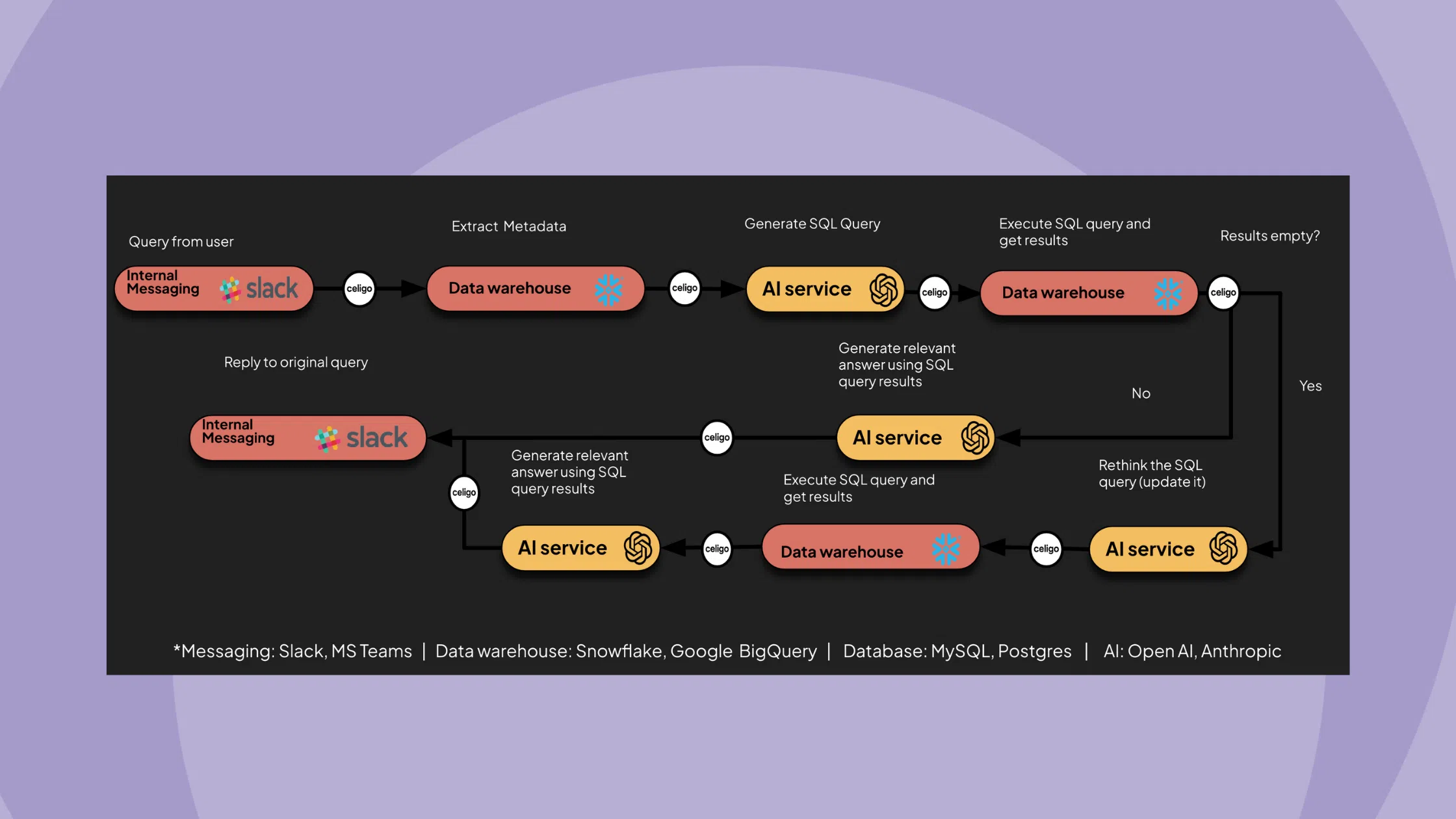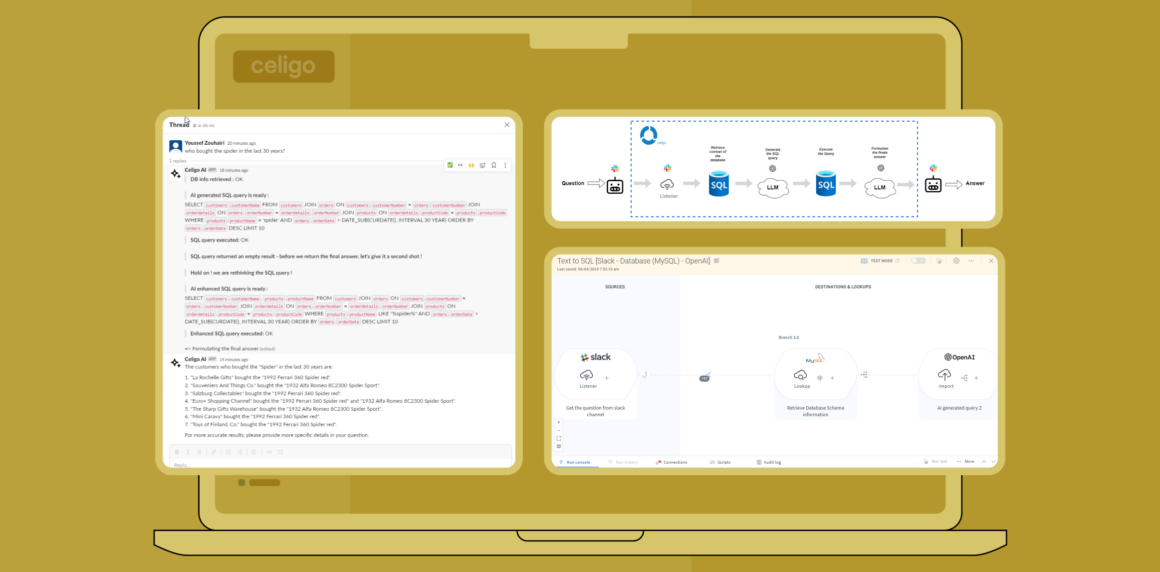Published Aug 19, 2024
Enhancing data accessibility with AI and natural language BI

In today’s data-driven landscape, efficiently accessing and interpreting data is crucial for informed decision-making. Traditional SQL-based databases, while powerful, often require specialized skills to query and manipulate data. This can slow down processes and limit data accessibility to a small group of technical users.
Integrating AI (OpenAI or Anthropic) with SQL-based databases—such as MySQL, PostgreSQL, and cloud data warehouses like Snowflake, Databricks, NSAW, and Google Big Query—through advanced iPaaS platforms like Celigo is changing this dynamic, allowing business users to interact with complex datasets in real-time using natural language.
Learn how to enable business users to obtain real-time insights into their stored structured data with natural language BI. Watch the Fusing AI and SQL webinar playback →
Streamlining data access with AI
Previously, accessing complex datasets required data and BI analysts to write and execute SQL queries. This process was time-consuming and limited to those with technical skills. Today, Celigo’s AI-driven platform allows business users to interact with their data directly. By using natural language queries through messaging interfaces like Slack or Microsoft Teams, users can receive real-time insights without needing to understand SQL.
How AI enhances SQL interaction
Celigo enables users to bypass these traditional bottlenecks.
Here’s how it works:
- Metadata retrieval: The system retrieves metadata from the database or data warehouse, understanding the structure of tables, fields, and relationships.
- AI-driven SQL generation: The AI processes the natural language input, generating an appropriate SQL query based on the metadata.
- Execute SQL query and get results: Using our optimized connectivity layer, the query is then executed against the database.
- Error handling and refinement: If the initial query does not return results (due to errors like incorrect table names or missing data), the system can refine the query and attempt to retrieve the data again.
- Response generation: The results are formatted into a human-readable response and delivered back to the user via the interface.
Natural language BI workflow
This workflow allows users to obtain necessary information quickly, without the need for SQL knowledge.

Practical applications of AI-enhanced SQL queries
Let’s consider a few examples of how this integration works in practice:
Sales reporting: A sales executive asks, “How many units of Product X were sold in the Western region last month?”
The AI generates an SQL query aggregating sales data by region and product type, returning the precise number of units sold. The executive team receives accurate and up-to-date information instantly, enabling quick decision-making.
Customer analysis: A marketing team member queries, “Which customers have purchased more than $10,000 worth of products in the manufacturing industry?”
The AI identifies the relevant customer and transaction tables, applies the necessary filters, and returns a list of high-value customers, allowing the team to target them for a loyalty campaign.
Inventory management: A logistics manager might ask, “What are the current stock levels for all warehouses?”
The AI retrieves and consolidates data from multiple tables related to inventory and locations, providing a comprehensive overview of stock levels across all warehouses.
Security measures in AI-SQL integration
Integrating AI with SQL databases requires robust security:
- Query validation: AI-generated queries are validated to ensure they don’t contain harmful commands (e.g., DELETE, INSERT).
- Input filtering: Inputs are analyzed to ensure they match the expected data structure and purpose, reducing the risk of SQL injection or other malicious activities.
- Platform security: Celigo’s platform incorporates security features that safeguard data during the integration and query process.
Future of AI and SQL-based databases
As AI develops, its integration with SQL databases and cloud data warehouses will only become more powerful. The ability to ask questions in natural language and receive precise, real-time data insights will enhance business operations and decision-making processes.
Integrating AI with SQL-based databases through advanced iPaaS platforms like Celigo represents a significant advancement in data accessibility and usability. By enabling users to query databases using natural language, this technology removes barriers to data access, empowers non-technical users, and accelerates decision-making processes.
As AI advances, the potential for even deeper integration with data systems will unlock new opportunities for businesses across all industries.




